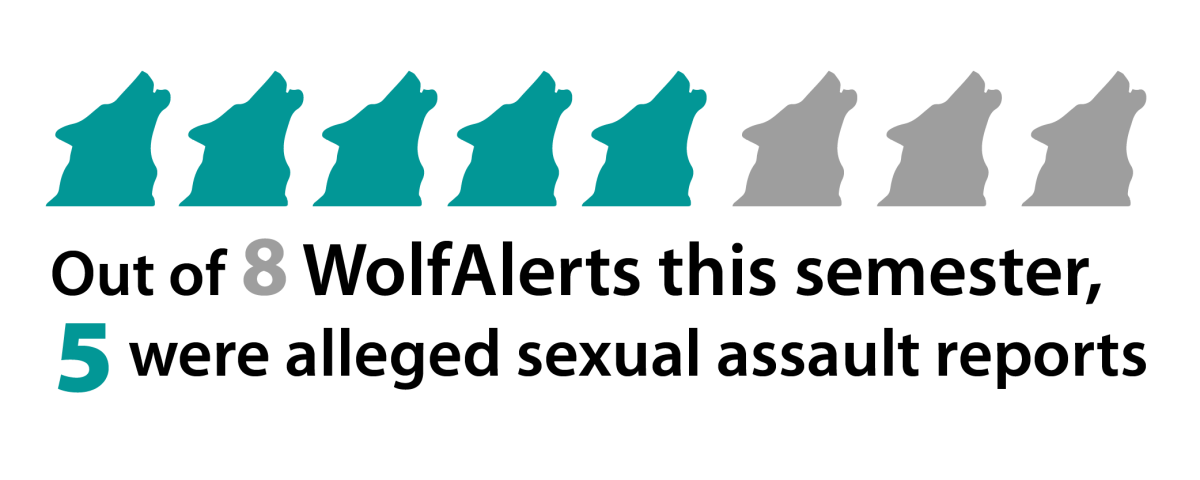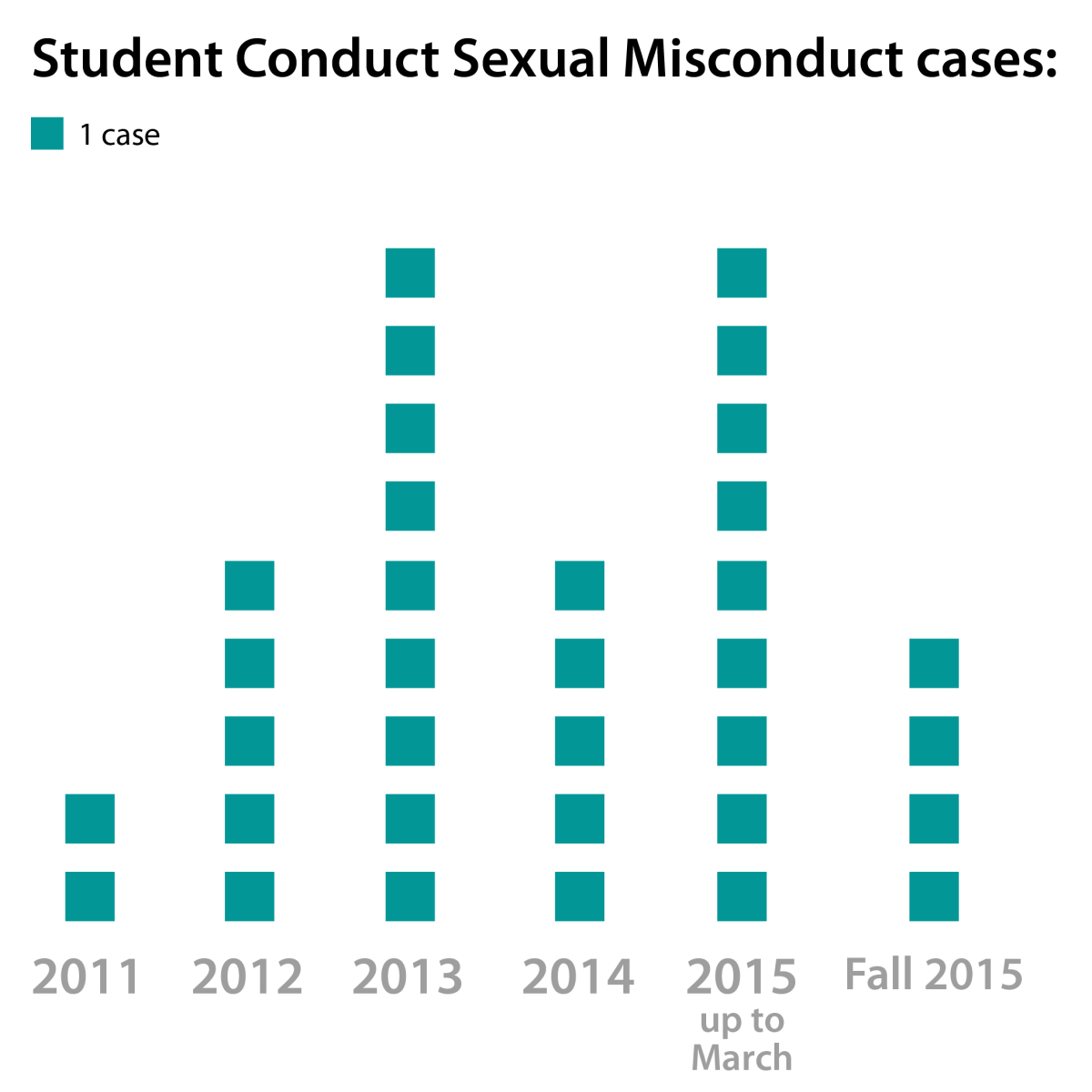This month marks the 25th anniversary of the Jeanne Clery Disclosure of Campus Security Policy and Campus Crime Statistics Act, better known as the Clery Act. This act paved the way for systems such as NC State’s WolfAlerts. The act requires campuses that received federal money to publish an annual report of campus crime data.
WolfAlerts notify students through e-mail and sometimes text messages of the time, location and a brief description of the report, as well as recommendations of how to stay safe in that situation.
Other Triangle schools have similar programs. At Duke University, these warnings are referred to as Duke Alerts, and at UNC-Chapel Hill they are called Alert Carolina.
The Clery Act requires that each university provide a timely warning to the community, which is why students often receive WolfAlerts in the early morning hours.
This past Saturday, University Police sent out its eighth WolfAlert of the semester, warning of an assault that happened off-campus.
Of the eight WolfAlerts sent out this past semester, five were reports of alleged sexual assaults. This semester, Student Conduct has handled four sexual assault cases. The Technician could not confirm the overlap between the sexual assaults handled by University Police and Student Conduct.
Since 2011, Student Conduct has handled 30 cases of sexual misconduct. As defined by Student Conduct, sexual misconduct is sexual harassment, sexual exploitation, sexual contact and sexual intercourse without consent and relation.
“This is a very charged topic, not just from the perspective of the damage, the real and potential damage to the student and community; it’s a charged topic administratively at a lot of institutions because a lot of administrators are terrified to talk about this because it hurts the image of the institution,” said Paul Cousins, director of Student Conduct.
Reporting a sexual assault can be done through many outlets on campus, including the Women’s Center, Student Conduct, Student Health or University Police. According to Cousins, once a sexual assault is reported, the university first ensures that the student who has reported the incident is safe.
Survivors can seek various services through the Counseling Center and Women’s Center.
“One of the things that happens when a student is a victim of this kind of behavior is often a sense of complete and total lack of control of choice involving a person’s body,” Cousins said.
Cousins explained that one of the things Student Conduct try to do is create a system that gives the control back to the survivor.
Otis McGresham, assistant director of the Women’s Center and head of Interpersonal Violence Services, said it takes a strong person to stand up and report an instance of sexual assault, and the Women’s Center is there to help them navigate through the process.
The student then has the option to pursue the case through the criminal justice system or through Student Conduct. The decision is solely up to the student making the report, and he or she can decide to take either or both routes. However, for the case to get processed through the criminal justice system, a certain amount of evidence is required for them to take the case, including a forensic examination report and a police report.
“The [district attorney] is disinclined to take that case because you really need a victim or witness to be successful in prosecuting sexual assault in the Court of Wake County,” Cousins said.
In going through the court system, the survivor must be prepared for the openness and attention the system requires.
“You’re standing on the witness stand, you’re talking to DAs, you’re being cross-examined — having to tell your story and all of that is sometimes traumatizing,” Cousins said.
Due to the Family Educational Rights and Privacy Act, Student Conduct aims to make the process less brutal and victimizing, Cousins said.
“It’s a much more attractive option for somebody who says, ‘I’ve been victimized by this student,’” Cousins said.
Within the Student Conduct process, fair treatment is given to both the survivor and the suspect. Those reporting an incident of sexual assault, however, do not have to be an NC State student. As long as the suspect involved in the incident is, the case can be brought to Student Conduct.
Although both parties are treated fairly, Student Conduct administrators ensure the needs of the survivor are met. This could include separating contact and interaction with the suspect.
A pre-hearing conference is the next step in the process, which collects information from all involved parties. The survivor and suspect have access to attorneys if they choose.
Cousins then directs the hearing and is accompanied by Jordyne Blaise, the director of the Office of Institutional Education Equity and a Title IX coordinator, who acts as a consultant to Cousins.
Because of video technology like Skype, the survivor does not have to be in the room with the suspect during the hearing.
With the four cases that have been brought forward to Student Conduct and this process this semester, Cousins said he is pleased with the increasing numbers.
“I take it as a very good thing because my assessment of that is that it is still way under reported,” Cousins said. “If we are doing a better job, and people are feeling safer about reporting, that’s a good thing, a very good thing.”









